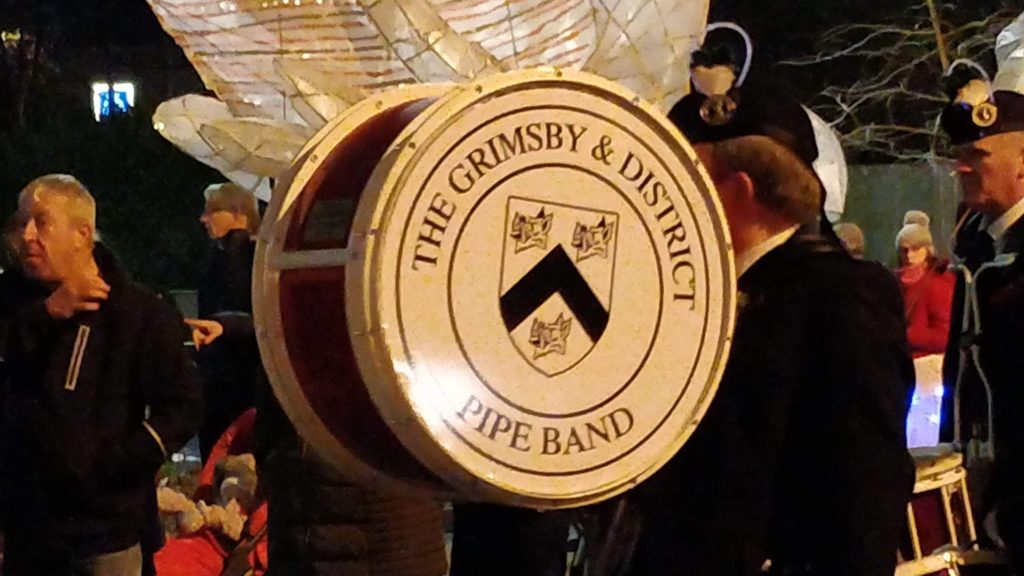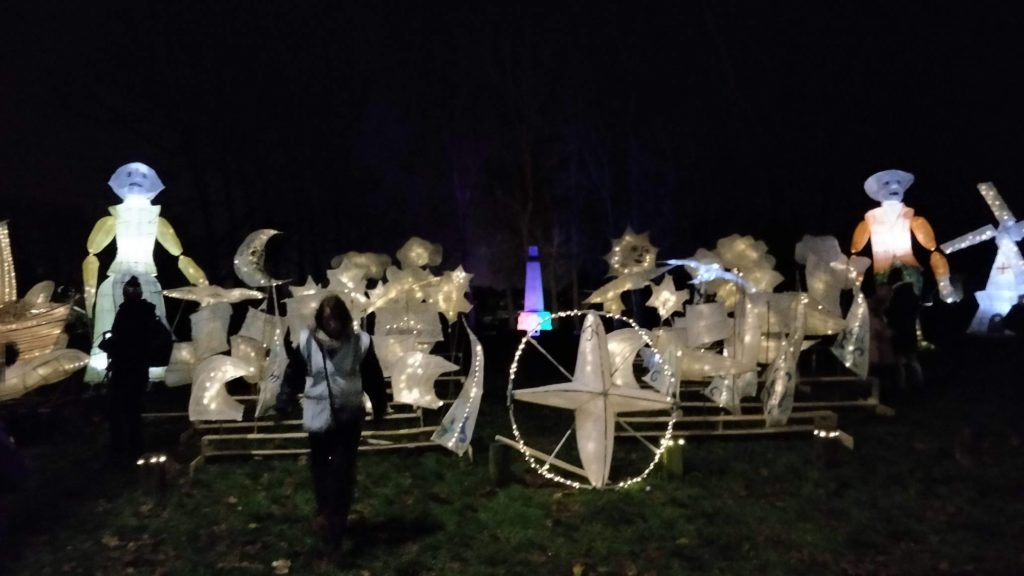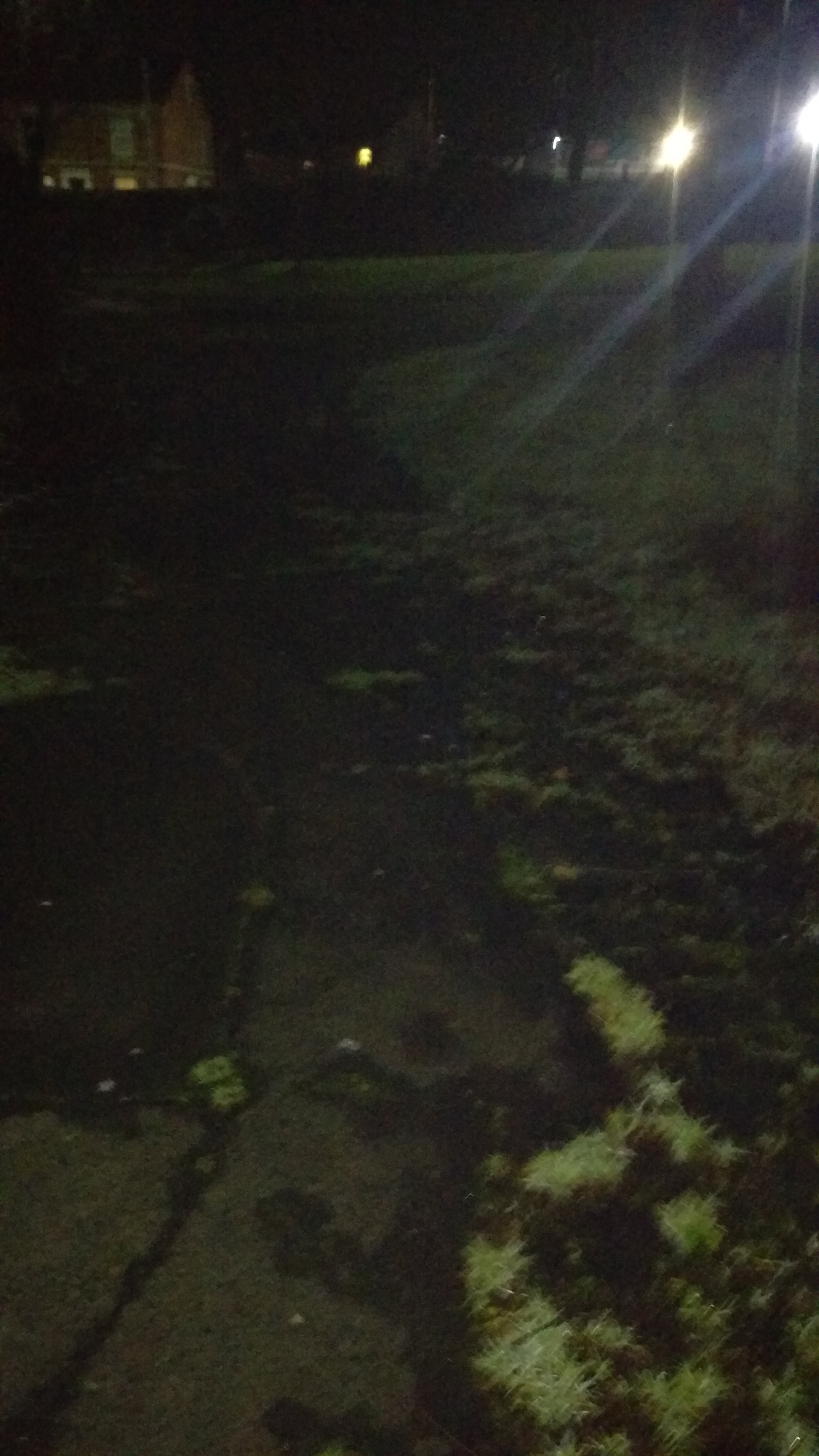Andrews Church, Immingham.
To you, I don’t know your name. I’m sure I could find out, you were doing the flower arrangement for the church on the occasion of the 400th anniversary of the departure of Immingham’s Mayflower passengers, thier Founding Fathers. It is Friday, 29 November 2019 and I’ve travelled down with Steve Pool, Giz and Tom and we helping Steve look after four projectors. It’s part of his work with the collaborators, a group of artists sharing ownership of the sorts of large-scale projector that can light up a sizeable building.
It’s a bitterly cold evening. Fortunately very little wind and I’ve dressed up prepared. Two pairs of trousers, hats, gloves, multiple layers and fleeces and anything to keep the cold away. And it works. I don’t even end up having to wear my gloves. My projection, the one I’m watching over, takes place at the start of the lantern parade that has been organised to celebrate the four centuries since a group of local citizens left Immingham, eventually to find themselves on the east coast of what would become America.
Just that alone is passé. Literally and metaphorically. In these days of Trump celebrating the founding fathers itself rings false. We don’t celebrate the founding fathers, we might have celebrated some founding mothers a few decades ago, perhaps some foundlings might pass muster today. But what we see in the founding fathers is the start of a call that echoes with desecration.
Immingham however doesn’t falter. We are at the Parish church while Steve sets up the equipment. A man walks down the path towards us wearing a black nylon bomber jacket. To me he looks like a parish priest but Giz, having sharper vision than I, asks him if he is security?
Yes. Just keeping them little buggers away from the equipment and causing trouble.
Steve drives me down to B&M Bargains and sets up projectors from the back of two cars which project a series of artworks done by children from the village. Around 5:45 a group of young people arrive and set up Japanese drums and are followed by increasing numbers of local residents. It’s a really white place. It’s a really English place. The priestly security guard had explained earlier:
Immingham is really just a village but is actually in the process of becoming a town.
The procession was a picture book event. It looked so much like itself that you can see the similarities with every other occasion. Everything was there. The local pipe band, a white bearded man carrying a silver topped marching staff. Wearing a kilt and so decidedly and fruitfully like the actor that he actually was not that he managed to make a group of slightly lesser grey-haired men march behind him blowing into tartan bagpipes. Banging a drum on which was writ large Cleethorpes. Or Grimsby.
We are down in deepest Viking village names, lands that are flat and open to the east winds. That border the sea. Immingham.
It is down by St Andrews church that it happens. The thing I didn’t expect to happen but for which I was waiting nevertheless. I know that because I recognised it when it took place.
The priest-security guard had made his way out of the churchyard and Steve asked me to give a hand to an old lady who was somewhat struggling with boxes she wished to bring to her car.
So she, who becomes you, walked very stiffly with your walking stick. I met you outside your car and took the boxes from your arms and wondered how you’d manage to get there at all. Effectively disabled. We spoke whilst I placed the tools of the flower arranger in the back of your little car. This is what you said:
I don’t originally come from Immingham. I come from the north-east coast, from Northumberland. But my husband came from here and we moved here when we got married. That was in 1960. You wouldn’t believe what it was like here then. If you look around now then all that existed when I came here was this church, that cottage just across the road and the row of terraced houses on the other side of the green. That and a little thatched cottage that’s now been knocked down, just there, where an old man called Jesus lived.
Where? I asked. Where was the cottage?
Just there on the corner. There weren’t any roads it was just tracks.
So that was it. Just a stupid English parish church on the east coast. A 1000 year old parish church that formed some sort of ancient heart of a Newtown developed around oil refineries and chemical industries in Grimsby.
It is a really nice village to live in. We’ve won prizes in the village in Bloom competition. We were invited to go down to London to build a garden, an exhibition garden. It was so good that everyone remarked on it but we weren’t even mentioned. The judges were so impressed that they decided to invent a special category and gave an Award. The whole village comes together and spends the time preparing. You should come and see. It’s a really special place, everybody really gets on with each other. There’s no trouble here. Well… There have been a few changes… You know some… I shouldn’t say… Some people moved in… A family from Sheffield and things really got difficult. There was trouble with that family and it spread and we had quite a lot of problems but they’ve gone now and things seem to have calmed down.
You went off in your car. Back to your husband? Not sure how you manage? Such persistence. So nice to have a church in which to arrange flowers. So nice to have four centuries of remembrance. You told me about the honour of being one of the three villages dressing up as founding fathers, sitting on the stone from whence they departed on the village green. I think you had been one of those. I think that’s what you were telling me.
After you left back down the path from the church came the security-priest. I hailed him, I literally hailed him.
What’s this? What’s this I hear about Jesus living in a little cottage here by the church? Is that true? Can that really be true that Jesus lived here next to the church in a little cottage and he had a big beard?
Well… That’s what they say… I’m not really sure it was him myself…
You’re not sure it really was him? But it might have been?
But is it true did an old man called Jesus really live there?
Yes. But you know there are just people that do that sort of thing. Grow beards. There’s one man who grows his beard all year just so he can be Father Christmas.
But what was the nature of his character? What did people think of him? What was he like?
Well… The children were terrified of him…
Immingham. Grimsby. Cleethorpes. The Southbank of the Humber, curled underneath the lip of that dank tongued river mouth.
You’ve borne a Jesus and only a few decades ago.
I’ve met two people who knew him. And I know it’s true because the children were terrified of him.









